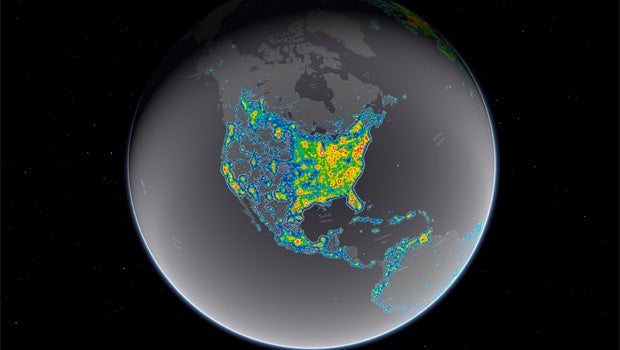Light pollution means a third of humanity can’t see Milky Way

Global light pollution now means almost one third of the population are unable to see the Milky Way, a new study has claimed.
New data from the National Oceanic and Atmospheric Administration claims 77 per cent of Brits are blocked from viewing the the natural wonder, while 80 per cent of Americans’ views have been obscured by perpetual artificial light.
“In our urban centers, you’ve got multiple generations of people that could not go out and see the Milky Way, and it’s a shame that they can’t,” wrote co-author Chris Elvidge of the NOAA’s National Center for Environmental Information.
“
The study points out that a person living in Paris would need to travel as far as central Scotland in order to view a night sky unobscured by natural light.
Lead author Fabio Falchi wrote: “If you live near Death Valley National Park, you only have a few sources of light pollution luckily, but you are close enough to Las Vegas to have the brightness of your sky increased.
According to the authors, who published a global atlas displaying the extent of the problems (pictured), humanity “has enveloped our planet in a luminous fog that prevents most of Earth’s population from having the opportunity to observe our galaxy.”
The authors say excess light pollution could be tablets by switching to LED lights with warmer colour spectrums or by limiting the ability of artificial illumination to escape into the atmosphere.


